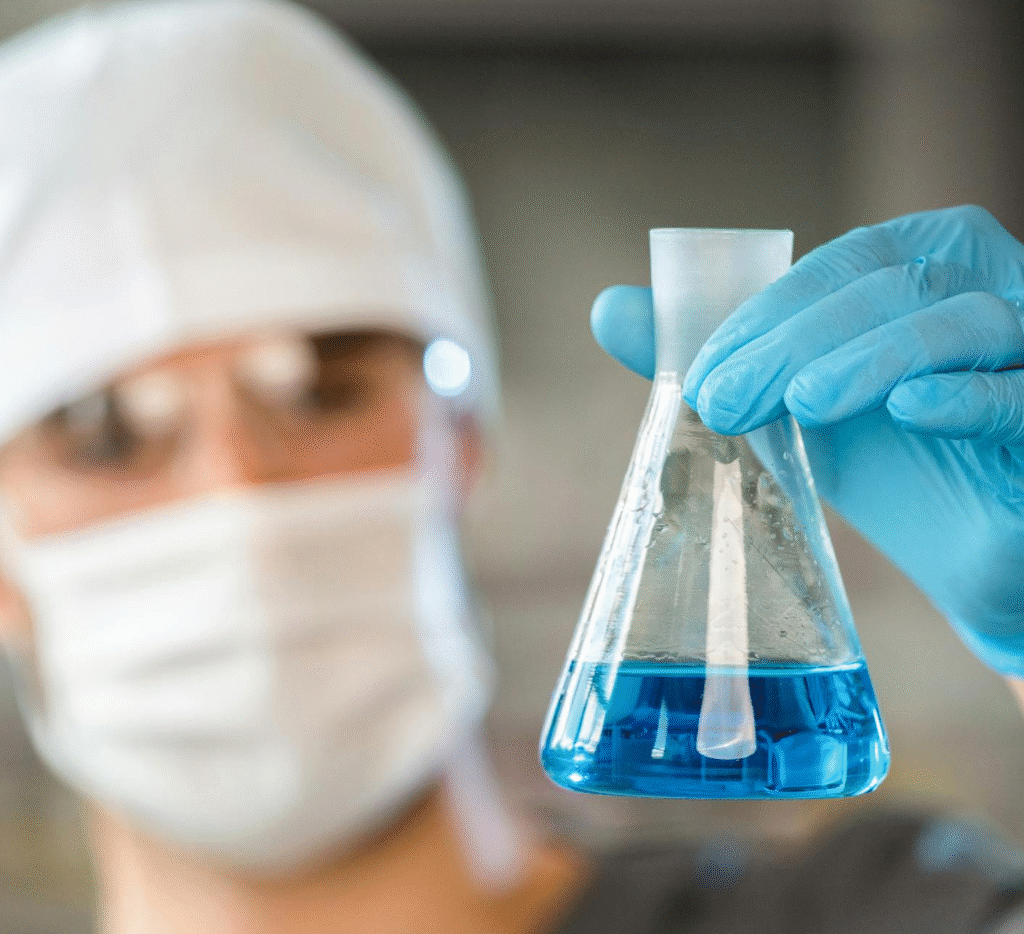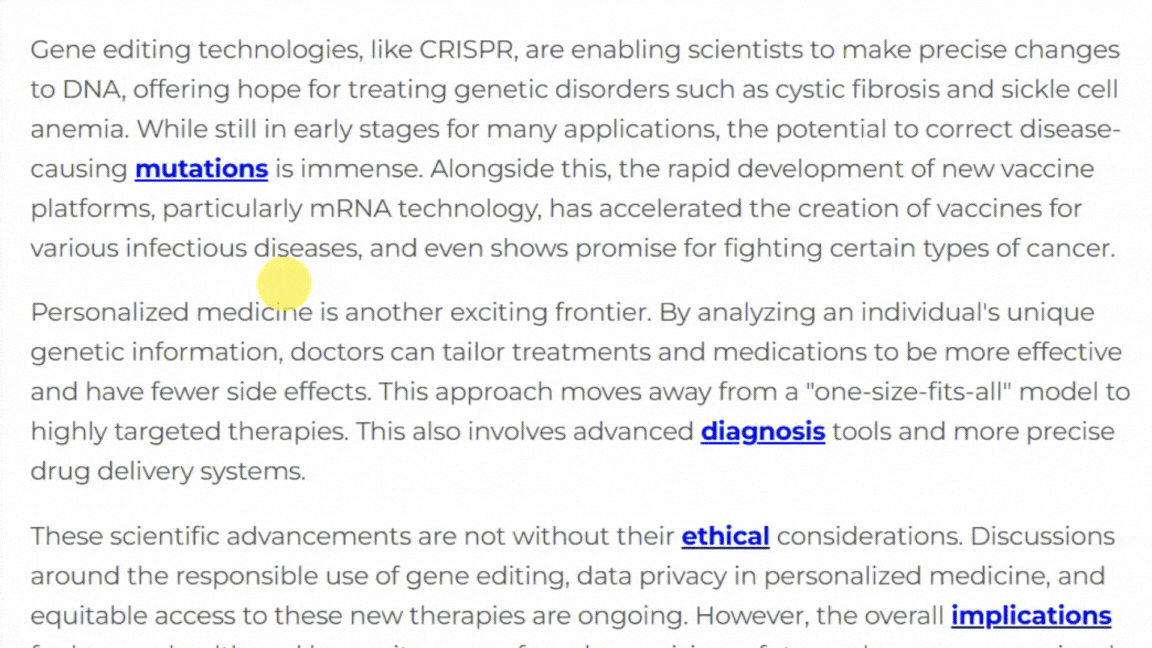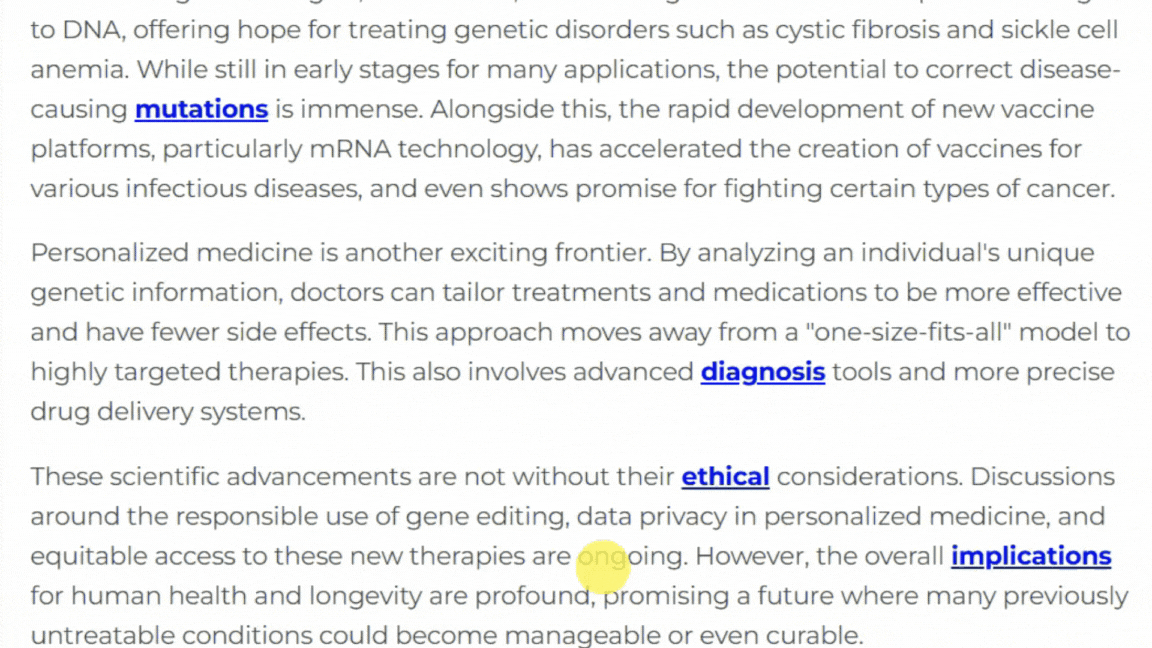Amber Talk
Enhance Your Conversation
- Login
- / Sign Up
Amber Talk
Enhance Your Conversation

Improve Your English Skills
Please enter your email to get more information on how to improve your English skills and to continue with the Article.

Breakthroughs in Medicine
News Audio Player
News Audio Player
Scroll Down For Speaking Practice
The fields of medicine and biotechnology are experiencing a period of unprecedented innovation, leading to breakthroughs that promise to revolutionize healthcare. New discoveries in gene editing, the development of innovative vaccines, and the rise of personalized medicine are transforming how we prevent, diagnose, and treat diseases.
Gene editing technologies, like CRISPR, are enabling scientists to make precise changes to DNA, offering hope for treating genetic disorders such as cystic fibrosis and sickle cell anemia. While still in early stages for many applications, the potential to correct disease-causing mutations is immense. Alongside this, the rapid development of new vaccine platforms, particularly mRNA technology, has accelerated the creation of vaccines for various infectious diseases, and even shows promise for fighting certain types of cancer.
Personalized medicine is another exciting frontier. By analyzing an individual's unique genetic information, doctors can tailor treatments and medications to be more effective and have fewer side effects. This approach moves away from a "one-size-fits-all" model to highly targeted therapies. This also involves advanced diagnosis tools and more precise drug delivery systems.
These scientific advancements are not without their ethical considerations. Discussions around the responsible use of gene editing, data privacy in personalized medicine, and equitable access to these new therapies are ongoing. However, the overall implications for human health and longevity are profound, promising a future where many previously untreatable conditions could become manageable or even curable.
Let's Talk About It!
- 1. What is one medical breakthrough you find most impressive?
- 2. How do vaccines protect people from diseases?
- 3. What are your thoughts on gene editing technology? Is it good or bad?
- 4. How might personalized medicine change healthcare in the future?
- 5. Do you think new medical treatments should be available to everyone?
- 6. What are some ethical concerns related to biotechnology?
- 7. How important is scientific research for improving human health?
- 8. What role does technology play in modern medical diagnosis?
- 9. How can we ensure new medical technologies are used responsibly?
- 10. What is one healthy habit you practice to prevent illness?
Article Vocabulary Instructions
Click to Enlarge

Click to Enlarge
